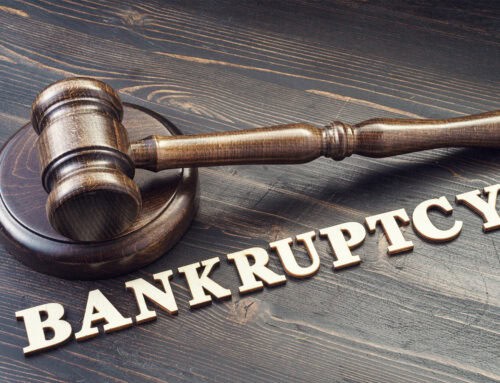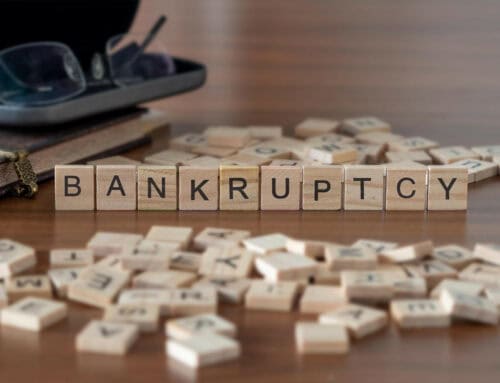Does My Income Affect Whether I Can File for Bankruptcy?
Filing for bankruptcy is a significant decision that can provide relief from overwhelming debt, but it comes with specific eligibility requirements. One of the critical factors in determining whether you can file for bankruptcy, particularly Chapter 7, is your income. This article will delve into how your income affects your eligibility to file for bankruptcy, focusing on the means test and income limits for Chapter 7 bankruptcy.
Understanding the Means Test
The means test is a crucial component in assessing whether an individual qualifies for Chapter 7 bankruptcy. This test was introduced to prevent high-income earners from filing for Chapter 7, which allows for the discharge of most unsecured debts without repayment. The means test evaluates your income, expenses, and family size to determine your disposable income, which is used to repay creditors.
Step 1: Calculating Current Monthly Income
The first step in the means test is calculating your current monthly income (CMI). This includes all sources of income received in the six months prior to filing for bankruptcy, such as wages, salaries, bonuses, rental income, business income, and even certain types of public assistance. Once you have your total income for the past six months, divide this amount by six to get your average monthly income.
Step 2: Comparing to Median Income
The next step involves comparing your average monthly income to the median income for a household of your size in your state. Median income levels are determined by the Census Bureau and are updated periodically. If your income is below the median, you automatically qualify for Chapter 7 bankruptcy, bypassing the need for further testing.
Step 3: Calculating Disposable Income
If your income exceeds the median, you must proceed to the second part of the means test, which involves calculating your disposable income. This is done by deducting allowable expenses from your CMI. Allowable expenses include costs for housing, utilities, food, transportation, and healthcare, among others. The Internal Revenue Service (IRS) provides national and local standards for these expenses, which must be adhered to.
After deducting these expenses, the remaining amount is your disposable income. If your disposable income is below a certain threshold, you may still qualify for Chapter 7 bankruptcy. However, if it is above the threshold, you might have to consider filing for Chapter 13 bankruptcy, which involves a repayment plan.
Income Limits for Chapter 7 Bankruptcy
The income limits for Chapter 7 bankruptcy are designed to ensure that only those who genuinely cannot afford to repay their debts can file. These limits vary by state and household size, reflecting the cost of living differences across the country.
Household Size and Income Considerations
The means test takes into account the number of people in your household. A larger household will have higher allowable expenses, which can affect your disposable income calculation. It’s essential to accurately report your household size to ensure the correct application of the means test.
Changes in Income
It’s also important to note that the means test considers your income over the past six months. If you have experienced a recent change in income, such as a job loss or a significant pay cut, this will be reflected in your CMI and could impact your eligibility for Chapter 7 bankruptcy.
Exceptions and Special Circumstances
While the means test is a strict guideline, there are exceptions and special circumstances that can influence the outcome. For example, if you have primarily business debts, you may be exempt from the means test. Additionally, certain expenses not covered by IRS standards, such as caring for a special needs family member, may also be considered in your disposable income calculation.
Chapter 13 as an Alternative
If you do not qualify for Chapter 7 bankruptcy due to your income, Chapter 13 bankruptcy remains an option. Chapter 13 involves creating a repayment plan to pay off your debts over three to five years. While it doesn’t offer the immediate discharge of debts like Chapter 7, it can provide relief by reorganizing your debts into a manageable payment plan based on your income and expenses.
Seeking Professional Advice
Navigating the complexities of the means test and determining your eligibility for bankruptcy can be challenging. It is highly recommended to seek professional legal advice to understand your options fully. A bankruptcy attorney can provide personalized guidance based on your financial situation, ensuring that you make informed decisions about your debt relief options.
Your income plays a significant role in determining your eligibility to file for bankruptcy, especially for Chapter 7. Understanding the means test and how it applies to your financial situation is crucial in deciding the best path forward. Whether you qualify for Chapter 7 or need to consider Chapter 13, seeking professional advice can help you navigate this complex process and achieve the financial relief you need.
If you’re struggling with debt and unsure about your eligibility for bankruptcy, contact the Law Offices of Brent D. George for a free consultation. We can help you understand your options and guide you through the bankruptcy process with confidence.
Disclaimer: This article is intended for informational purposes only and does not constitute legal advice. For personalized assistance, please contact our office at (805)494-8400.






